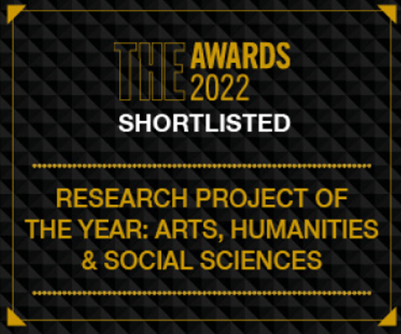Waterproofing Data
 This project, building on the work undertaken in the Waterproofing Data project, is targeted at developing, deploying and evaluating a mobile application and community-based intervention to increase the resilience of flood prone communities around several cities in Brazil. The production of this manual was also supported by the University of Warwick ESRC Impact Accelarator Aaccount (ES/T502054/1) through the project ‘Accelerating the impact of citizen-generated data for improving the monitoring and management of catastrophic flooding’.
This project, building on the work undertaken in the Waterproofing Data project, is targeted at developing, deploying and evaluating a mobile application and community-based intervention to increase the resilience of flood prone communities around several cities in Brazil. The production of this manual was also supported by the University of Warwick ESRC Impact Accelarator Aaccount (ES/T502054/1) through the project ‘Accelerating the impact of citizen-generated data for improving the monitoring and management of catastrophic flooding’.
Work across these projects has emphasised the need to develop a systematised citizen-science approach to enhance social learning and territorial understanding in different communities across both the Global North and the Global South, with regard to catastrophic flooding and other natural hazards. In the context of these ongoing projects we have developed a ‘dialogical participatory mapping’ methodology - an innovative systematised approach for engaging with citizens and capturing perceptions of risk from the viewpoint of local community, strengthening situational awareness and enhancing community resilience through the production of geospatial data. The ultimate goal here is the production of an accurate cartographic depiction of existent and emerging themes of interest within communities in relation to the perceived threats and challenges. Such ‘generative data’ are the starting point of this dialogical methodology that brings together citizens viewpoints and policymaking priorities and perspectives.
We work in close partnership with Cemaden, the National Disaster Monitoring and Early-Warning Centre in Brazil. It builds upon the results of the successful collaboration of the partners within the ongoing GCRF-funded project “Waterproofing Data” (part of the programme “Transformations to Sustainability” of Belmont Forum/Norface), in which the partners have developed and piloted a methodology to engage schools, flood-prone communities and local governments in the production and circulation of flood-related data to improve flood resilience.
Research Objectives
- Implementation of a rigorous and systematised mapping of unmapped or partly mapped existing study areas of the project;
- Pilot implementation of the developed dialogical participatory mapping framework and methods in three Brazilian marginalised communities;
- Production of a disseminating material such as videos and manuals about our experiences and methods on the implementation of the dialogical participatory mapping methodology.
We are pleased to announce that the 'Waterproofing Data' project has been shortlisted for a Times Higher Education (THE) Award 2022 in the catagory of 'Research Project of the Year: Arts, Humanities and Social Sciences'.

All Books




